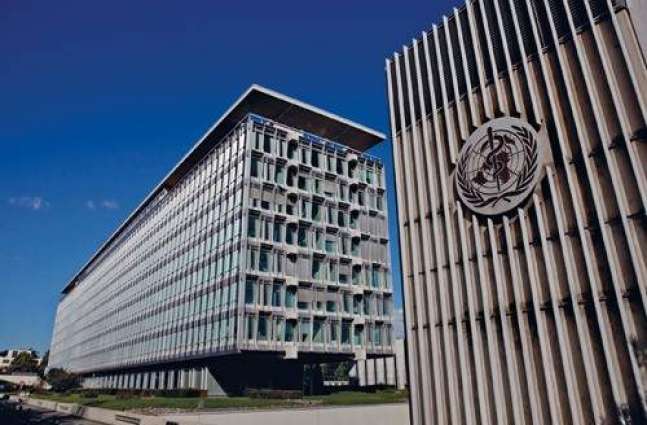The World Health Assembly (WHA), which has been convened from Monday to Tuesday in a move to bring all countries on board in their joint response to the COVID-19 pandemic resulted in a resolution calling for evaluation of the agency-led response to the outbreak and has, on the contrary, further highlighted the political controversy surrounding the infection
MOSCOW (Pakistan Point News / Sputnik - 19th May, 2020) The World Health Assembly (WHA), which has been convened from Monday to Tuesday in a move to bring all countries on board in their joint response to the COVID-19 pandemic resulted in a resolution calling for evaluation of the agency-led response to the outbreak and has, on the contrary, further highlighted the political controversy surrounding the infection.
There have been more than 4.8 million cases registered across the world so far, according to the data collected by Johns Hopkins University. The World Health Organization (WHO) estimates that there are 2 million cases registered in the Americas, slightly more than 1.8 million in Europe, 141,593 cases in South-East Asia, 168,515 cases in the Western Pacific.
The pandemic has disrupted business and logistics across the world and forced governments to introduce self-isolation measures to reduce the virus transmission. A number of companies have switched to working from home.
This was the first time when the assembly, the WHO's main decision-making body, convened virtually. As many other events forced to move online due to the pandemic, the assembly has faced multiple technical difficulties such as connection failures and audio and video glitches.
WHO VOWS RESPONSE REVIEW AT 'EARLIEST APPROPRIATE MOMENT'
The pandemic has caused the global economy to shrink. Global economic growth is expected to slow by more than 6 percent to reach -3.0 percent in 2020 as a result of the new coronavirus pandemic, the International Monetary Fund said in its World Economic Outlook in April. The US economy risks permanent damage unless businesses can start reopening, Treasury Secretary Steve Mnuchin said earlier on Tuesday.
The United States and Australia have called for an international inquiry into the pandemic. US President Donald Trump went so far as to suspend funding to the WHO after questioning its handling of the pandemic and calling it "China-centric." Meanwhile, China and WHO have both underscored that their response and data sharing on the infection were timely.
On Monday, Trump published a letter to the organization saying the US would stop funding unless there were some major changes within the next 30 days.
On the second day of the assembly, member states unanimously voted to adopt an EU resolution that calls for solidarity and intensified joint response to the pandemic, equal and fair access to COVID-19 treatments. The resolution also suggests an evaluation of COVID-19 response. According to the resolution's text, the evaluation will look at the effectiveness of the mechanisms at WHO's disposal, the functioning of the International Health Regulations, adopted in the wake of SARS outbreak, as well as WHO's actions to address the COVID-19 pandemic.
"I thank Member States for adopting the resolution, which calls for an independent and comprehensive evaluation of the international response, including, but not limited to, WHO's performance. I will initiate such an evaluation at the earliest appropriate moment. We welcome any initiative to strengthen global health security and to strengthen WHO," organization's chief Tedros Adhanom Ghebreyesus said in the conclusion of the assembly.
The adoption of the resolution by consensus was hailed by the United States, describing it as "the first critical steps necessary to ensure that, when we face the next pandemic, we will have a World Health Organization and an international system capable of responding effectively and decisively to save lives and protect the vulnerable." Washington, however, objected the resolution's wording on intellectual property and pooling of patents as sending "the wrong message to innovators who will be essential to the solutions the whole world needs."
NO MENTION OF SANCTIONS REMOVAL IN RESOLUTION
While welcoming the consensus on the resolution, Iran, Cuba and Syria decried the fact the resolution lacked a request for lifting of sanctions and exports blockade imposed on them by the US.
"The prolongation of this unilateral and coercive measures during this global health crisis is a violation of the principles that the draft resolution is aimed to work for ... We would like to say that the best way of applying this resolution would be through an initiative that would invite the removal of all sanctions and measures taken by governments in order to be able to provide the results that we wish for," Hussam Edin Aala, the Syrian permanent representative to Geneva, told the assembly.
A US delegate, however, responded by saying that Washington continued offering humanitarian assistance to Syria, Iran and Cuba and claimed that the sanctions were not an obstacle to humanitarian aid.
CONTROVERSY OVER TAIWAN'S PARTICIPATION
United States Secretary of Health Alex Azar said Monday it was critical that Taiwan should join the WHA as an observer.
The demand, however, comes in contradiction to the so-called One-China principle. Under this policy, Taiwan is part of China. Countries that have formal diplomatic relations with Beijing do not officially recognize Taiwan as an independent state.
The Chinese delegate has remarked that the assembly did not consider the proposals on Taiwan.
"However, there are still a few countries determined to plead for the Taiwan authorities, seriously violating relevant UN and WHO resolutions and undermining global anti-epidemic efforts. China solemnly protests and firmly opposes this behavior," the delegate said.
The disagreement over Taiwan added to the difference of opinion on sanctions and further underlined that global unity is extremely hard to reach, even when all the countries in the world are facing the same challenge.




